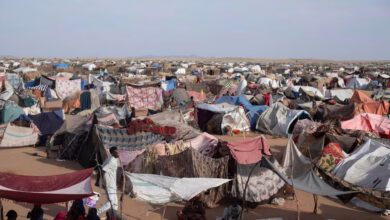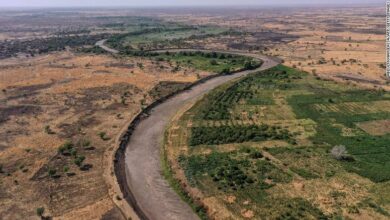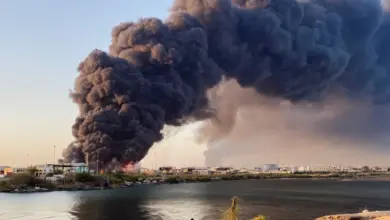Johannesburg — Renewed fighting in Sudan's most contested border region and in a strategic oil-rich state has left at least 20 people dead, and a top official said Wednesday he feared more attacks in the weeks leading up to South Sudan's independence in July.
Deng Arop Kuol, the chief administrator in the disputed border region of Abyei, said a northern Sudanese army convoy was stopped at a police checkpoint on Sunday while attempting to move south through the area without permission from his government. He said at least 12 people were killed in the resulting firefight between the two sides.
Meanwhile, an official in the south's oil-producing Unity state said rebels opposing the southern government on Tuesday attacked a village in the state, killing eight people, including two local chiefs.
South Sudan voted in January to secede from the north, and is set to become a new nation in only 10 weeks. The independence referendum was part of a peace deal to end more than two decades of war that left at least 2 million dead.
Since the historic vote, at least seven southern rebel movements have emerged or resumed their activities, causing heavy violence across the south as the southern army has attempted to defeat these challengers. Southern officials have repeatedly blamed the Khartoum-based northern government for the unrest in the south, allegations the north continues to deny.
The issue of whether the Abyei region will be in the north or the south remains undecided, and aid groups and analysts fear the dispute could spark further unrest. Sudanese President Omar al-Bashir recently threatened he would not recognize the new southern nation if it includes Abyei.
Attacks in the area already have left more than 100 dead, and the United Nations says about 20,000 people fled Abyei town in early March because of the violence. Southern officials have blamed the attacks on the northern military, which has denied any involvement.
In the latest unrest, Kuol said at least 12 people were killed. However, the UN said it found 14 dead bodies at the site of the clash, 11 of them in uniforms from the joint military force made up of members from both the north and south.
Members of the convoy identified themselves as members of that joint military force. Kuol, though said they were accompanied by Sudanese Armed
Forces from the north and should not have been moving south without explicit permission from his government.
Neither the northern or southern armies are authorized to maintain troops in the disputed Abyei area. The joint forces were created by a 2005 peace deal, but they have often fought against one another since the deal was signed.
Kuol told The Associated Press he fears the northern forces are seeking to occupy the Abyei area.
"Right now we are expecting all-out attacks from the side of the SAF on the Abyei area," he said. "They are amassing their troops so we will not rule out an attack (at) any time."
A satellite monitoring project backed by actor and activist George Clooney has released images in recent months documenting military buildup by both sides in Abyei. The images also have shown the destruction of homes and whole villages in attacks.
According to Mayom County Commissioner Charles Machieng Kuol, the rebel forces that attacked in Unity state's Mayom County on Tuesday also torched huts and looted property in the remote village.
"The civilians have no protection and they were just running away," Machieng said, noting that no southern troops are stationed in the village. "They opened fire (on) the running civilians and killed eight of them."
Southern army spokesman Colonel Philip Aguer confirmed the attack had occurred, but told the AP there were no casualties.
The UN's humanitarian coordinator for South Sudan said last month that 800 people have died and 94,000 more have been displaced in violence
in the south so far this year. Fighting has further escalated since then between the southern army and a host of rebel movements active in oil-producing zones across the south.



